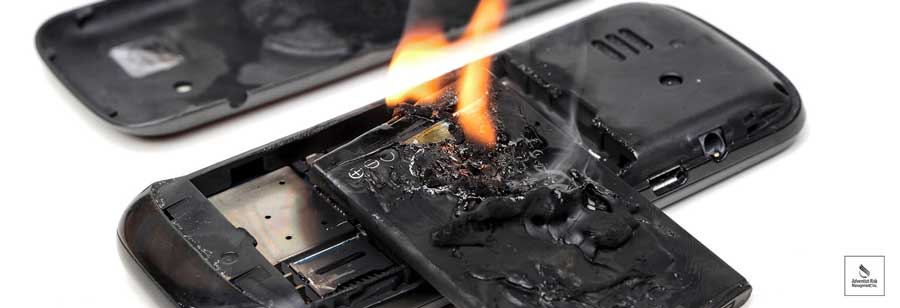I am a pyrophile who can’t start fires.
Not to be confused with a pyromaniac—someone who cannot stop themselves from lighting fires—a pyrophile is someone who enjoys or gets enthusiastic about fire or fireworks. I love a good fireworks show or cozying up to a warm bonfire, but I am the worst at starting one.
There are places you want a fire, such as in your fireplace, at your bonfire, near your campsite, or dancing at the end of your candlewick. But some places you want to avoid fire, such as in schools, churches, or camp buildings.
Here are five little-known ways to prevent starting fires where you don’t want them.
1.Don’t Leave a Charging Smartphone Under Pillows—or Under Anything!
Phones have evolved into small computers with core processors that can overheat. Smothering your phone with a pillow, or leaving it under any flammable material while it is charging prevents the phone from maintaining a safe temperature. Your phone or any other electronic device can overheat and catch fire. Charge your devices uncovered on a solid surface, such as a table or nightstand. Don’t forget to unplug when charging is complete.Recently Samsung released the new Note 7 smartphone; there have been recalls as this device is catching on fire due to an issue with the battery. If you have one of these devices, contact your phone provider or Samsung directly for specifics on the recall.
2.Check Your Hoverboard
Hoverboards use powerful batteries that are safe when correctly manufactured. Many manufacturers are using knockoff batteries which can combust unexpectedly. Check your hover board for a UL certified charger and battery. If it isn’t UL certified, consider replacing your hoverboard. Keep the hoverboard away from flammable materials while charging.3.Clean Dryer Hose and Vents
Dryer lint that sneaks past your camp or school’s dryer filter can build up, block airflow, and ignite. It can be easy for dormitory students and campers to forget to clean out the dryer lint tray in the hustle and bustle to get to their next class or activity. Clothes dryer fires happen more in the autumn and winter months of the year when you switch to heating your buildings instead of air conditioning them. Prevent fires by asking students and campers to clean the dryer lint tray after every load. Ensure the dryer is vented properly to the outdoors, and clean out the dryer vents and hoses once a year to prevent flammable buildups. Consider including these tips as part of an orientation presentation for schools and camps.4.Buy the Correct Light Bulbs
Buying appropriately rated light bulbs can be a pretty complicated process, especially when deciding between incandescent, compact fluorescent lamp (CFL), halogen, and LED light bulbs. Having the wrong bulb wattage can cause bulbs to heat up, melting wires and lampshades until a fire starts. Always purchase bulbs within the correct wattage spectrums for your lighting fixtures, and replace bulbs as soon as they go out.5.Unplug Air Freshener Plugins.
Electric air fresheners heat scented oil and release the scent into the air. Heat plus oil is the perfect combination for a fire. Left plugged in too long these air fresheners can overheat and start fires. Treat these electrical devices like a candle. Plug them in for a few hours to freshen up a room and then unplug them until you need them again.In addition to removing fire hazards like these, always have smoke detectors and fire extinguishers installed and regularly tested in your facility as part of your seasonal maintenance plan. Have an emergency evacuation plan in place and practice it annually with your team, so everyone is prepared to evacuate as soon as possible in a fire emergency.
Safety Sabbath is an excellent way to help your church prepare to evacuate in a fire emergency. Sign up to learn more about Safety Sabbath or visit SafetySabbath.com.


